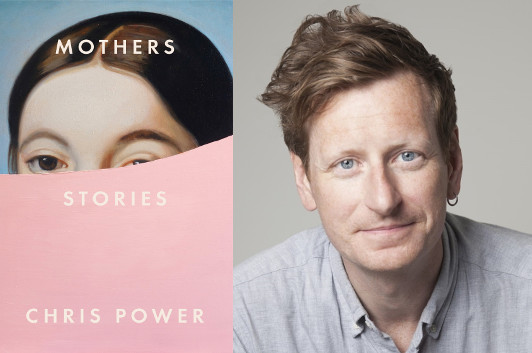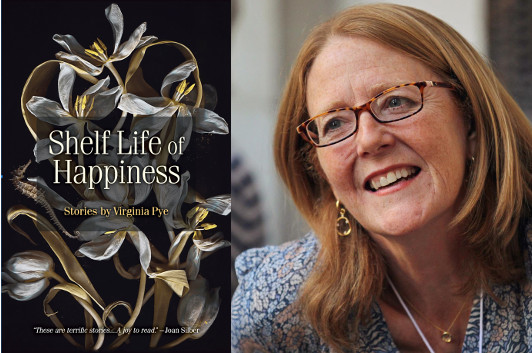Chris Power: Discovering the Short Story

photo: Claudia Burlotti
A flailing standup comedian keeps his career alive by doing Rodney Dangerfield’s act, but you can just imagine how that makes him feel. A woman recalls growing up in an apartment complex in the 1970s, and the lie she told about one of her neighbors. A seemingly innocuous disagreement between two weekend vacationers over a hiking route turns out to have deep emotional undercurrents. These are some of the worlds of Chris Power’s debut collection, Mothers. One of the reasons I was interested in this collection is that, as he explains in the opening to this guest post, Power isn’t just a creator of short stories, he’s also a scholar of the genre—surely, I thought, he’d have some recommendations for the “Selling Shorts” series that would send me off not just in new directions, but new directions I hadn’t even known were on the map. You know what I mean: There’s a lot of writers we “know” we “should” read, and Power certainly mentions some of those, but there’s also the writers we had no idea we ought to be reading, and Power passes along some intriguing discoveries (for me, at least), too.
Since 2007 I’ve written a column called “A Brief Survey of the Short Story” for the Guardian. Each edition aims to provide an overview of the work of a single author whose work has some significance in the development of the short story form. It doesn’t operate to a strict timetable (it’s been nearly two years since the last edition, which I guess you could call a hiatus), but I’ve written 72 of the things so far, and I still have a list as long as your arm of writers I’d like to include in the future.
21 January 2019 | selling shorts |
Virginia Pye: Black Tickets & Feminist Poets of Another Time

photo: Tennessee Photography
I met Virginia Pye at a book festival down in Richmond ages ago, so I was delighted to hear that she’s got a new short story collection, The Shelf Life of Happiness. In her stories, you’ll see how an elderly painter being courted by a rich young art collector and a teenage skateboarding enthusiast embarrassed to be driven to the skate park by his dad are fighting similar battles. You’ll also spend time with a man who’s accompanying his old friend from college, who’s now dying of AIDS, as he gets married in a remote town that’s little more than a few stores and a motel lining either side of the highway, and a woman who’s struggling to make sense of a brutal murder that stuns her small community. In this essay, Pye shares some thoughts about a story collection, and the poems that preceded it, that helped her clear a path to writing about characters struggling to figure out, let alone assert, their identities.
When I was twenty, Black Tickets, the story collection by Jayne Anne Phillips, with its hard-edged prose about hard-edged people, hit me hard. I’d read Hemingway’s short stories. Fitzgerald and Chekov, too. Isaac Babel and Isaac Bashevis Singer, and that one about the yellow wallpaper that everyone had to read. Unlike novels, short stories seemed the place to start for an aspiring young writer. Stories were like small sculptures, carefully shaped and refined, seemingly comprehensible with a single walk around.
But when I tried to write them, mine tended to sprawl into an unruly mess. My pages grew dense and overwritten as I attempted to say too much. Then I read Black Tickets and saw that when you used restraint, you created meaning in a more powerful way. If you kept it minimal, you could leave your reader aching for more, at least that was the hope. But it wasn’t just Phillips’ style of writing that I admired and wanted to emulate. Her stories hit home because they were about women and girls, not unlike me.
23 October 2018 | selling shorts |

 Our Endless and Proper Work is my new book with Belt Publishing about starting (and sticking to) a productive writing practice.
Our Endless and Proper Work is my new book with Belt Publishing about starting (and sticking to) a productive writing practice. 
